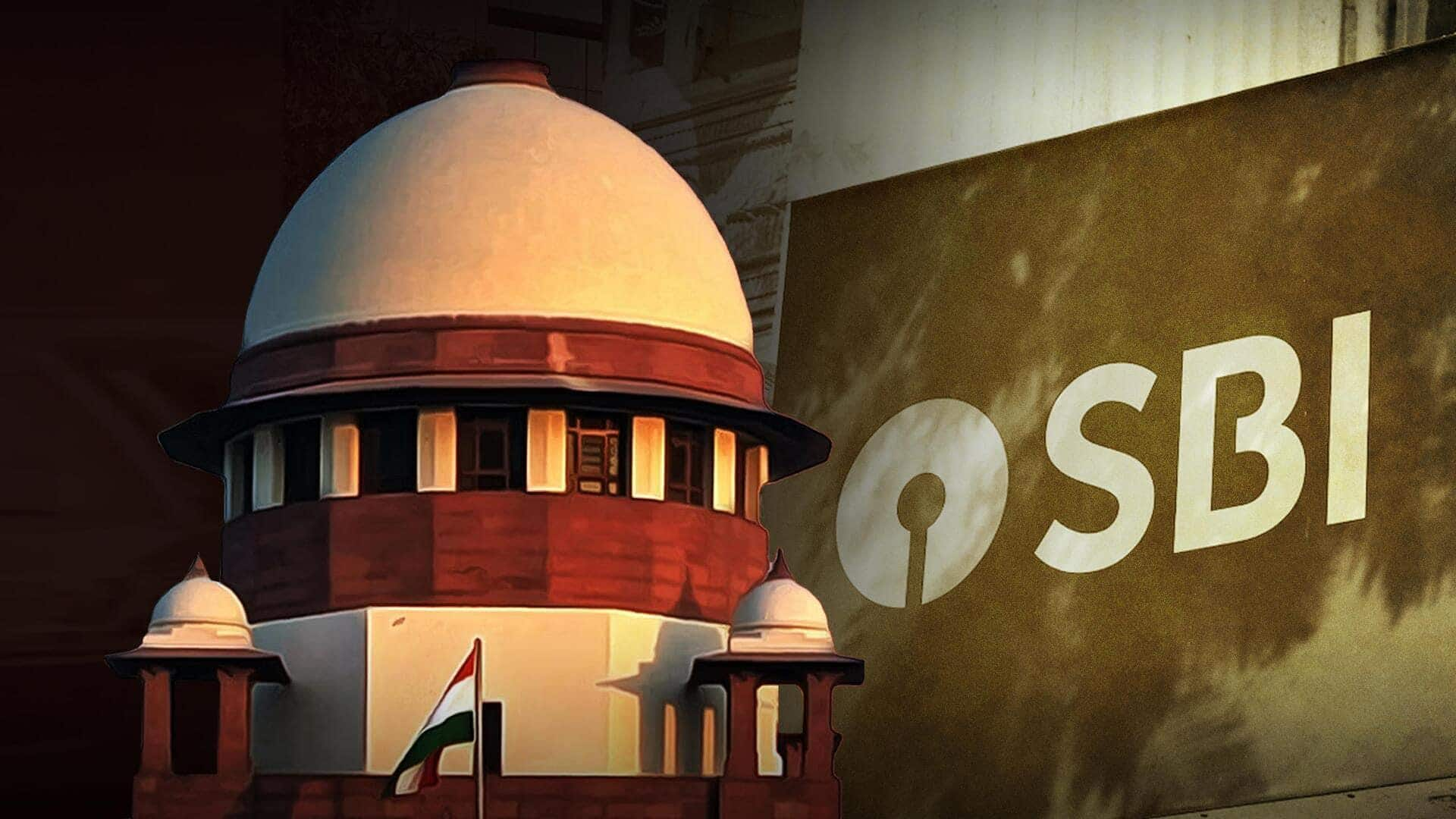
Contempt plea against SBI for refusing to disclose electoral bonds
What's the story
The Association for Democratic Reforms (ADR) has approached the Supreme Court (SC), seeking contempt of court action against the State Bank of India (SBI) for "disobeying" its orders regarding electoral bonds (EBs). The apex court had set Wednesday (March 6) as the deadline for the SBI to submit details of EBs purchased since April 12, 2019. However, the SBI on Monday asked the SC for an extension until June 30 to comply with the order.
Context
Why does this story matter?
In a February 15 ruling, the SC said the scheme—introduced by Prime Minister Narendra Modi's government in the 2017 Union Budget—is unconstitutional and violates the right to information. But the court took years to hear the petitions submitted against the scheme and previously refused to stop it. This means that, as recently as January 2024, the SBI sold hundreds of electoral bonds worth crores. The ADR application, if allowed, would force the SBI to disclose donor and donation amount details.
ADR plea
ADR labels SBI's request for extension 'malafide'
A bench headed by Chief Justice DY Chandrachud took note of the submissions made by lawyer Prashant Bhushan, who appeared on behalf of the ADR. The ADR described the SBI's extension request as "malafide" and an attempt to stymie transparency measures ahead of the Lok Sabha elections. Bhushan stated that the SBI's plea will most likely be listed on March 11 and that the contempt application should be considered together.
SBI
Reasons SBI gave for wanting extension
In its extension plea, the SBI mentioned "certain practical difficulties with the decoding exercise and the timeline fixed for it." The bank explained that due to strict measures ensuring donor anonymity, decoding electoral bonds and matching donors to donations is complex. It added that some details are stored digitally, while others are stored physically, making the retrieval and matching process time-consuming. The bank argued that the three-week timeline set by the court was insufficient to complete the task.
Details
SBI has infrastructure to quickly compile information on EBs: ADR
The ADR has refuted the bank's claims, stating the SBI has the requisite infrastructure to compile and disseminate information on electoral bonds quickly. "That the requirement of the KYC is mentioned in Section 4 of the EB scheme itself, therefore, the SBI is well aware of the identity of purchasers of each Electoral Bond," the ADR argued. The Election Commission of India can only publish information on electoral bonds purchased since April 12, 2019, after the SBI submits it.